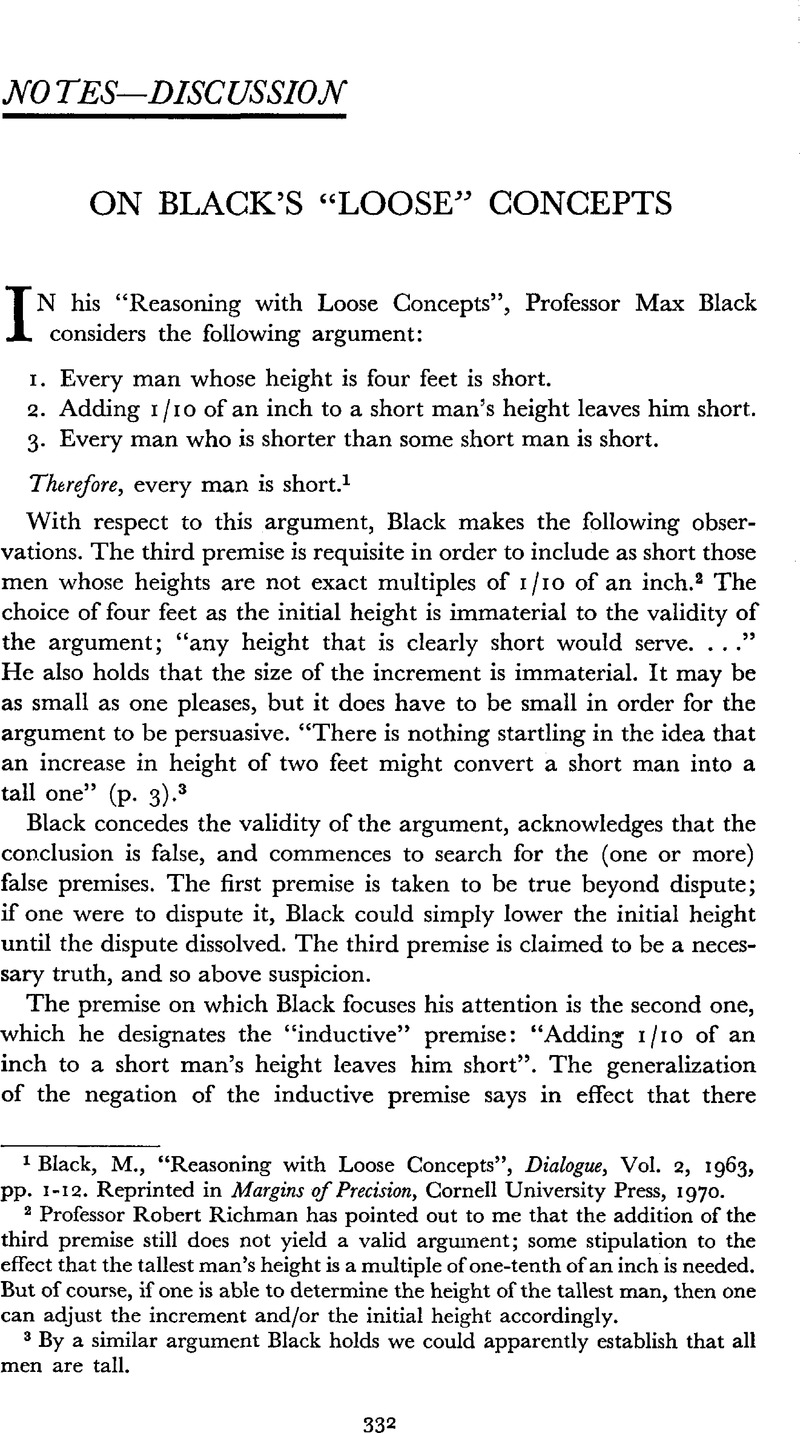No CrossRef data available.
Article contents
On Black's “Loose” Concepts
Published online by Cambridge University Press: 01 June 1971
Abstract

- Type
- Notes—Discussion
- Information
- Dialogue: Canadian Philosophical Review / Revue canadienne de philosophie , Volume 10 , Issue 2 , June 1971 , pp. 332 - 336
- Copyright
- Copyright © Canadian Philosophical Association 1971
References
1 Black, M., “Reasoning with Loose Concepts”, Dialogue, Vol. 2, 1963, pp. 1–12. Reprinted in Margins of Precision, Cornell University Press, 1970.Google Scholar
2 Professor Robert Richman has pointed out to me that the addition of the third premise still does not yield a valid argument; some stipulation to the effect that the tallest man's height is a multiple of one-tenth of an inch is needed. But of course, if one is able to determine the height of the tallest man, then one can adjust the increment and/or the initial height accordingly.
3 By a similar argument Black holds we could apparently establish that all men are tall.
4 Black acknowledges that in the past this sort of concept was one that he classified as “vague”, but he now prefers “loose” in that it avoids some of the “pejorative implications” to be found in “vague”.
5 If Black can distinguish between short men and borderline men, then perhaps 'short' is sharply bounded after all. In fact, we have at our disposal a variety of other ways of describing our “intermediate” man: “fairly short”, “pretty short”, “moderately short”, “certainly not tall”. That there are such locutions available shows that we are not obliged to say, of any given man, that he is either short or not short, and suggests that there is no need to treat such pairs of terms as exhaustive.
6 By a derivative property F I mean one which is not ascribable unless there i s another property G which is ascribable. We may say that the meaningful ascription of the property F logically presupposes that there are (or could be) things that have the property G.
7 Of course, there is a traditional view of vagueness in which a familiar term such as red is taken to be paradigmatic of vagueness, Black's well-known views standing squarely in this tradition. Cf. his “Vagueness: An Exercise in Logical Analysis”, Language and Philosophy, Cornell University Press, 1949.


